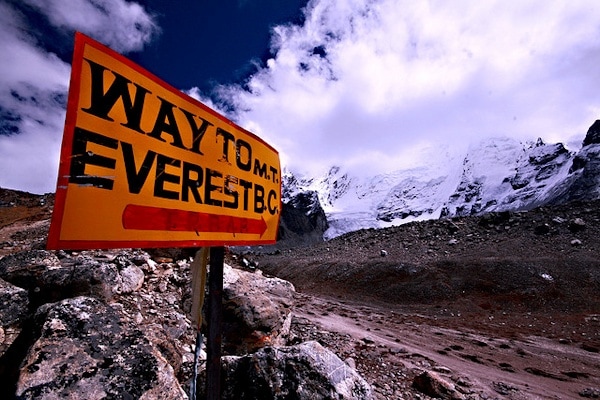One of the problems with becoming financially literate, living a frugal lifestyle, getting out of debt and working toward financial independence is that it doesn’t always feel fun. My husband and I used to feel cash-strapped because we really were. We literally did not have any extra money. We were spending more than we earned and using savings to make up the difference.
We did the hard work to dig out of debt early, and while I was proud of that accomplishment, I also knew that we wouldn’t feel rich once the debt was gone — we had other important jobs for our money that had been neglected for too long. Working toward financial independence feels like climbing Mount Everest, and paying off our debt was just the very beginning.
I often feel cash-strapped now, but the difference is that we’re doing constructive things with our money: slowly increasing our net worth and building financial security for our family as we work toward the ultimate goal of financial independence. We’re saving what we can, and we’re not touching it anymore.
“Never look back” is good advice in some situations, but when you’re slogging along the path toward the summit of your own financial Mount Everest, it can be very empowering to take a break now and then to savor the view and consider how far you’ve come.
Maybe your interim view, like ours, includes a rusty used car, hand-me-down furniture and clothing and a somewhat shabby home, but those things matter less the higher you climb. I’m pleased with how far we’ve come over the past decade.
10 years ago

I am living with my parents one year after graduating from college. I started my first salaried position three months ago. I have just started paying back the student loans that I had deferred for a year while I was jobless. I have approximately $16,000 in student loan debt, not too bad since I attended a state university with some scholarships and financial aid.
I have recently learned, after being denied my first car loan, that I have a “colorful” credit history due in large part to my three credit cards, all with late payments and 28 percent interest rates. Up until then I did not know or care what a credit history was, and I was ignorant of my financial state. My credit card debt is a few thousand dollars. I really need a car to get to and from work, so my dad borrows $6300 from his 401k, which I am to pay back monthly, with interest, within the year.
I am engaged to be married in July 2005, and I do not want to bring credit card debt and a poor credit score into my marriage. I have been convinced that student loan debt is “good debt” (or at least mostly harmless), so I don’t feel as bad about that. I sit down at my computer to do some research and find a tool on Bankrate.com that helps me formulate a plan to repay all of my consumer debt, including the car, within one year.
At the same time, I am paying for wedding expenses with cash. I am not saving any money, and my net worth is negative. I will stumble a time or two, but I’ve found the path up the mountain.
5 years ago

It has been one year since I made the big decision to leave my job to be a stay-at-home mom. Our income has been halved as a result. Although we carefully planned and saved and had been confident that we could live on a single income, some baby expenses took us by surprise. To top things off, my husband’s industry nearly collapsed, and he was furloughed for two weeks.
Unable to pay all of our bills with our regular income, we are dipping into savings each month to break even. By the end of the year, our savings will be nearly depleted, and we will anxiously await our tax refund in order to replenish our bank account and start the cycle all over again.
We do not have a dedicated Emergency Fund, and we are one major catastrophe away from being completely broke. I attempt to reassure myself by remembering that I could always cash out my 401k, or deciding that carrying credit card debt isn’t the end of the world, even though I had sworn in 2005 that I would never have credit card debt again. Relatively minor emergencies like a car repair or a clogged pipe stress me out immensely.
We have no credit card debt, but we are still paying student loans and we financed a larger family vehicle. Our debt payments are close to $500 per month, or 15% of our gross income. We are still paying for premium cable service and cell phone plans that we barely use — I cling to those outward signs of “prosperity” because letting them go feels like an acknowledgment that we are not as well off as we used to (seem to) be. I haven’t yet accepted that keeping those luxuries guarantees that we will never be very well off.
We are not saving any money each month, but halfway through the year, our net worth is slightly positive. We are learning to live well with much less money, a valuable lesson, but we’re kind of stuck in a fog, and not making progress.
Today

Our second baby has just turned one. Again we had to pay for expensive hypoallergenic baby formula; this time it didn’t break the bank, but we weren’t able to save as much money as we would have liked over the past year.
However, we have a dedicated Emergency Fund that is almost fully funded for three months of living expenses. We also have a special occasion fund with money set aside for gifts and celebrations throughout the year, and a Sinking Fund for large purchases and house projects (with a very small balance right now, as we have other priorities). We have house projects on the horizon that will cost money, but it feels good knowing that we are prepared for unplanned expenses, even pricey ones. Best of all, I can pass along that reassurance to my oldest son, who tends to be a worry wart like me.
We still carry zero credit card debt, our premium cable package and cell phone plans are long gone, and we paid off our student loans and my car loan early, a year and a half ago. If we had stuck with the repayment schedule, we would have just finished repaying those debts. Paying off our debt early was the turning point that enabled us to make progress again.
Unfortunately my husband’s old car failed on us before we expected it to, and we hadn’t had the time to save cash for a new one (we chose not to empty our Emergency Fund), so we have another car loan. If we had not paid off our other debt ahead of schedule, we would probably have found ourselves back in the same cycle we were in five years ago. While I’m disappointed that we took on new debt, the payments account for 4% of our income, and we will work on paying it off much earlier than scheduled.
That old 401k that I used to think about cashing out for emergencies or house projects? It has almost doubled in value without me contributing a cent. My husband never stopped contributing to his 401k even when times were tough, and it’s worth 6 times as much as it was back in 2009. While the market will inevitably take us on a rollercoaster ride, it’s fascinating to see that, right now, we are 15 years ahead of schedule (based on retirement at 65) despite being able to save only a little. If we had halted saving, we would have missed out on valuable years.
My husband’s good old fashioned hard work has paid off in the form of raises and promotions, and his income has increased by about 50 percent since he became our sole breadwinner. Our net worth has increased by 516 percent in five years.
Up until recently I felt that achieving financial independence early (or maybe even at all) was as impossible for us as climbing Mount Everest. But I’ve realized that, after a decade of experiences and learning, we’ve already reached the base camp and we’re ready to trek on.
Where We’re Headed

I’ve learned so much through the years, and I know the way forward. Learning to live more simply has helped our Everest seem a bit smaller. Now what’s left is to do the hard work to slowly and steadily make our way to the top. Some people were smart and started earlier when the conditions were the best. Others may have more resources to work with, and occasionally some are able to hitch a ride on a helicopter. It might take us a little longer, but we can get there by:
- Having the discipline to avoid lifestyle inflation as our income increases
- Watching out for budget creep and making money-saving changes when we can
- Seeking ways to further increase income through freelance work and/or entrepreneurship
- Saving and investing more
What does the top of our Everest look like? It’s having enough money saved up to live comfortably without being tied to a job. It’s having the time and freedom to do the things we enjoy, like travel and hobbies. It’s being able to help others financially the way others have, at times, helped us. It’s not worrying about money ever again.
I am grateful for all of my “sherpas” in the personal finance community and beyond who have inspired me to learn and do more than I thought possible 10 years ago.
Now, how about you? What’s your view like so far? What changes have you made that you’re proud of? What’s at the top of your Mount Everest?
Image sources (I haven’t actually climbed Mount Everest, but these awesome people shared their pictures): Way to Everest sign, Mount Everest fog, Mount Everest base camp, Climbing Everest

Great read, Jen! It’s not an overnight thing, adjusting to lower and lower levels of frugality, is it? Glad you’ve been able to stick it out and are better off for it.
Thank you! Yes, it definitely takes time to adjust. I didn’t have a lot growing up, so it was doubly difficult letting go of the extras as an adult. It felt like a step backward, but it wasn’t really.
I was married at the very, very young age and during that time we really had a big financial problem. I worked for, how a few years and decided to a full time mom. When I looked back our situation 9 years ago, I didn’t think that we survived!
Good for you for getting through that, Marie! I’m sure you gained really valuable experience from that tough time.
Great post Jen! In 4 years we have paid off close to $100k in debt! We still have some climbing to do, but it continues to get easier and easier!
Thanks, Brian! Wow, $100k in 4 years? That’s incredible. Good for you.
Congratulations, Jen!
Although I feel that we’re in a somewhat comfortable place than maybe 5-6 years ago, my ultimate dream is to be completely debt-free.
Thank you! Never give up — you can do it! I’m glad you’re doing better than you were a few years ago.
I really love this and am inspired by this! It’s amazing what a difference a few years can make!
Thanks, Cat! I’m glad I could provide a little inspiration.
Definitely an inspiration! We’re about as base camp level now too – just paid off student loans and starting to look up at the peak where we’ll have financial independence!
Thank you, and congratulations — that’s great progress!
Change is really a constant in this world. This is an inspiration. By the way, Mt. Everest is really cold and high. I would love to climb up at the top. That is one of my dreams in life.
You’re braver than I am, Marie! I don’t think I’d even want to attempt the real Everest 🙂
I’ve been traveling and haven’t visited for a while; I’m happy to be back. The Mt. Everest metaphor you used in this blog is perfect as is the over-all story of progress you tell. Your post should be mandatory reading for young couples, to be completed before they are issued a marriage license.
Thank you for taking the time to visit again, and I’m happy you think my experiences are so valuable. It would be nice if I could help some younger people avoid a few mistakes.